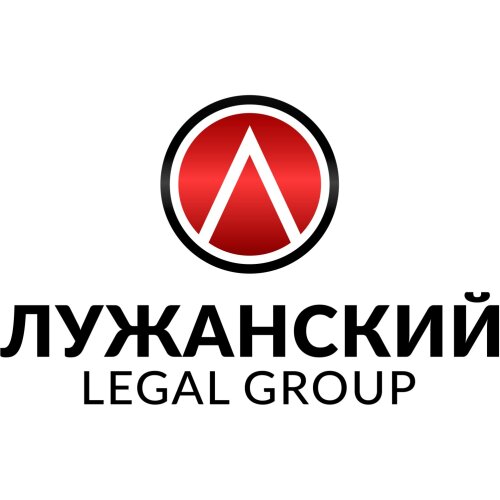Best Natural Resources Lawyers in Kyrgyzstan
Share your needs with us, get contacted by law firms.
Free. Takes 2 min.
Or refine your search by selecting a city:
List of the best lawyers in Kyrgyzstan
About Natural Resources Law in Kyrgyzstan
Kyrgyzstan is rich in natural resources, including water, gold, mercury, uranium, and other precious minerals. The country’s landscape is dominated by mountains, numerous rivers, and valleys, making it a vital area for mining, agriculture, and water resources. The legal framework governing these resources is intricate, balancing the need for economic development with environmental preservation and sustainable usage. In Kyrgyzstan, natural resource management is subject to national legislation, decrees, and regulations, with particular emphasis on mineral resources due to their economic significance.
Why You May Need a Lawyer
Legal assistance may be required in various scenarios relating to natural resources in Kyrgyzstan, such as:
- Mining and Exploration: Companies need legal advice to navigate the licensing and regulatory requirements for exploration and mining activities.
- Environmental Compliance: Ensuring that operations comply with environmental standards and laws to avoid fines and legal issues.
- Land Rights and Usage: Clarifying ownership rights, securing land for development, and resolving disputes over land use.
- Dispute Resolution: Mediating conflicts regarding resource extraction, land tenure, and environmental impact.
- Contract Negotiation: Drafting and reviewing contracts regarding resource exploitation, partnerships, and joint ventures.
Local Laws Overview
Kyrgyzstan’s natural resources are governed by several laws and regulations aimed at sustainable resource management and environmental protection. Key aspects include:
- Subsoil Law: Regulates the exploration and extraction of mineral resources, requiring licenses and adherence to environmental and safety standards.
- Water Code: Governs the use and protection of water resources, emphasizing conservation and sustainable use.
- Land Code: Establishes the framework for land ownership, use, and management, including zoning and land rights.
- Environmental Protection Law: Sets standards for environmental impact assessments and outlines penalties for non-compliance.
Frequently Asked Questions
What are the main natural resources in Kyrgyzstan?
The main natural resources in Kyrgyzstan include gold, mercury, uranium, coal, and abundant water resources.
Who oversees natural resource management in Kyrgyzstan?
The State Committee on Industry, Energy, and Subsoil Use oversees natural resource management, along with various other governmental bodies responsible for specific resources such as water and land.
Do I need a license to start a mining operation in Kyrgyzstan?
Yes, obtaining a license from the relevant authorities is mandatory for any mining or exploration activities in Kyrgyzstan.
What are the environmental protection requirements for natural resource extraction?
Resource extraction activities must comply with environmental protection laws, which include conducting environmental impact assessments and adhering to sustainability practices.
How can disputes over land and natural resources be resolved?
Disputes can be resolved through legal mediation, arbitration, or court proceedings depending on the nature and complexity of the issue.
Is foreign investment allowed in Kyrgyzstan's natural resources sector?
Yes, foreign investment is permitted and can be subject to specific regulations and agreements to ensure compliance with national laws.
What are the consequences of illegal resource extraction?
Illegal extraction can result in severe penalties, including fines, imprisonment, and revocation of licenses, as well as environmental restoration obligations.
How is land tenure determined in Kyrgyzstan?
Land tenure is determined based on the Land Code, which recognizes state, private, and communal land ownership, and establishes the procedures for land use and leasing.
What is Kyrgyzstan doing to ensure sustainable management of its natural resources?
The government is implementing policies and laws focused on sustainable resource utilization, environmental conservation, and promoting renewable energy sources.
Are there incentives for environmentally friendly mining practices?
Yes, the government offers incentives such as tax breaks and rebates for companies that comply with environmental regulations and promote eco-friendly mining practices.
Additional Resources
Here are some additional resources that can be useful:
- State Committee on Industry, Energy, and Subsoil Use: Offers information and guidance on policies and regulations for resource management.
- Ministry of Agriculture, Water Resources and Regional Development: Provides data and services related to water resources and land use.
- Environmental Protection Agency: Regulates and monitors environmental standards and compliance.
Next Steps
If you need legal assistance regarding natural resources in Kyrgyzstan, consider the following steps:
- Identify Your Legal Needs: Determine the specific issues or transactions for which you require legal help.
- Seek Recommendations: Ask for referrals from industry professionals or contact local bar associations for reputable legal firms specializing in natural resources.
- Consult with a Lawyer: Schedule consultations to discuss your situation and potential legal strategies before engaging in any formal agreements.
- Ensure Compliance: Work with legal experts to ensure all activities comply with local laws and regulations to mitigate risks and avoid disputes.
Lawzana helps you find the best lawyers and law firms in Kyrgyzstan through a curated and pre-screened list of qualified legal professionals. Our platform offers rankings and detailed profiles of attorneys and law firms, allowing you to compare based on practice areas, including Natural Resources, experience, and client feedback.
Each profile includes a description of the firm's areas of practice, client reviews, team members and partners, year of establishment, spoken languages, office locations, contact information, social media presence, and any published articles or resources. Most firms on our platform speak English and are experienced in both local and international legal matters.
Get a quote from top-rated law firms in Kyrgyzstan — quickly, securely, and without unnecessary hassle.
Disclaimer:
The information provided on this page is for general informational purposes only and does not constitute legal advice. While we strive to ensure the accuracy and relevance of the content, legal information may change over time, and interpretations of the law can vary. You should always consult with a qualified legal professional for advice specific to your situation.
We disclaim all liability for actions taken or not taken based on the content of this page. If you believe any information is incorrect or outdated, please contact us, and we will review and update it where appropriate.
Browse natural resources law firms by city in Kyrgyzstan
Refine your search by selecting a city.









